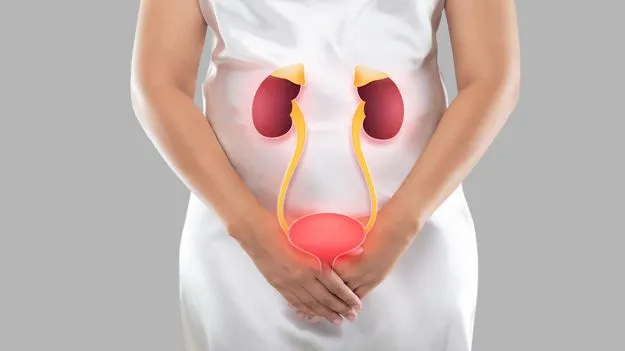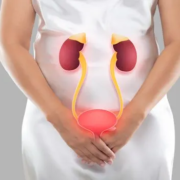Can a UTI Make You Bloated?
Urinary tract infections are uncomfortable , frustrating , and surprisingly common. But one question many people dont expect to ask is , can a UTI make you bloated? If youve ever felt swollen , gassy , or unusually full during a UTI , youre not alone.
The truth is , UTIs can cause more than just burning and urgency. Bloating and discomfort in your belly may also show up , often alongside symptoms like gas pain with uti , fatigue , or lower back pain. The urinary system and digestive system are closely connected , which is why an infection can ripple through your body in unexpected ways.
Understanding How UTIs Work
A UTI happens when bacteria enter the urinary tract , often through the urethra. This leads to inflammation and infection in the bladder or urethra , and in some cases , the kidneys. Classic signs include frequent urination , burning , and pelvic discomfort but many experience belly bloating too.

This brings us back to the main question: can a UTI make you bloated? Yes , it absolutely can. While not everyone will feel this way , for many , the infection causes internal swelling and irritation , which can extend beyond the bladder.
How Bloating Occurs With a UTI
Bloating during a UTI is typically due to inflammation and pressure in the pelvic region. When the bladder is inflamed , it can create a sensation of fullness or pressure that mimics bloating. This discomfort may be worsened by gas pain with uti , which is commonly reported by those battling an infection.
Another cause of bloating is slowed digestion. UTIs can disrupt gut bacteria and upset the digestive system , especially if antibiotics are involved. These medications often cause temporary imbalances in the stomach , leading to bloating , gas , or irregular bowel movements.
Gas Pain with UTI: Whats the Connection?
Gas pain with uti is more common than people realize. This discomfort may be caused by trapped gas in the abdomen , worsened by pelvic inflammation. Since the bladder and intestines are so close together , inflammation in one area can irritate the other. As a result , some people feel tightness , cramping , or stabbing pains in the lower belly.
In cases where the infection spreads to the kidneys , bloating may be accompanied by more serious symptoms like chills , back pain , or nausea. While this isnt always the case , any signs of upper back pain or fever should be taken seriously.
Can a UTI Make You Bloated After Starting Antibiotics?
Yes , its possible. Some people notice increased bloating shortly after starting treatment. This usually happens because antibiotics can kill off helpful gut bacteria , causing gas and digestive trouble. Eating probiotic rich foods like yogurt or taking supplements can help ease this.
Even after the infection clears , it might take a few days for your gut to reset. During this time , mild bloating and changes in digestion are common.
How to Reduce Bloating and Gas Pain During a UTI
If youre experiencing gas pain with uti or bloating , there are several ways to get relief at home. First , stay well hydrated. Drinking water helps flush bacteria and keeps your system moving. Avoid carbonated drinks or gassy foods like beans , broccoli , and dairy during this time.
A warm compress on the lower abdomen can relax tight muscles and reduce pain. Gentle movement , like walking , may also help move trapped gas and ease bloating. If youre taking antibiotics , consider adding a probiotic to your routine.
When to Worry About Bloating with a UTI
While its normal to feel some swelling , not all bloating is harmless. If youre wondering again , can a UTI make you bloated , and your belly feels hard , painful to the touch , or comes with fever or vomiting seek medical help immediately. This could mean the infection has spread or theres another issue present.
Persistent gas pain with uti that doesnt improve after treatment should also be evaluated. Conditions like interstitial cystitis , IBS , or gynecological problems can mimic UTI symptoms and require a different approach.
Prevention Tips for Future UTIs and Bloating
To avoid future infections and the uncomfortable bloating that may come with them , practice good hygiene. Always wipe front to back , urinate after sex , and drink plenty of fluids daily. Wearing loose fitting , breathable underwear can also reduce the risk of bacterial growth.
Avoid using harsh soaps or feminine hygiene sprays near the genital area. These products can disrupt the natural balance and make it easier for bacteria to invade.
So , Can a UTI Make You Bloated?
By now , the answer is clear can a UTI make you bloated? Yes , and while it doesnt affect everyone , its a well documented experience. Its often related to inflammation , pressure , disrupted digestion , or side effects of treatment. Thankfully , it usually goes away with proper care.
Lets answer a few common questions to clear up the confusion further.
FAQs
Q1: How long does bloating last during a UTI?
A: Bloating often improves within a few days of starting treatment. If it lasts more than a week , consult your doctor to rule out other issues.
Q2: What helps gas pain with a UTI?
A: Stay hydrated , avoid gassy foods , and apply a warm compress. Gentle movement and probiotics may also help relieve symptoms.
Q3: Can bloating be the only symptom of a UTI?
A: Its rare , but possible. However , bloating usually appears alongside other symptoms like burning urination or pelvic pain. If bloating is your only sign , get tested to be sure.
Conclusion
To wrap it all up , can a UTI make you bloated? Absolutely. While its not the first symptom most people associate with a urinary tract infection , bloating especially when combined with gas pain and abdominal pressure is very real for many.
Understanding this connection can help you feel more in control of your symptoms and recovery. Whether its caused by inflammation , digestive disruption , or medication , bloating linked to a UTI is typically temporary and treatable.
If you experience severe or long lasting symptoms , dont hesitate to seek medical advice. And as always , prevention and hydration are your best defenses. Stay mindful of your bodys signals , and youll recover more comfortably and quickly.

